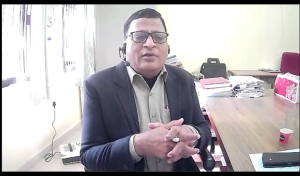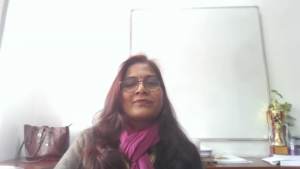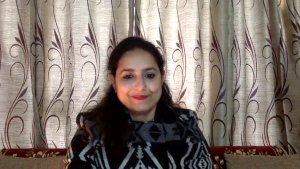The Institute of Management, Nirma University, held a conclave on 25th January 2022 on Nature and Prospect of Integrated Programme in Management in view of National Education Policy (NEP). The session aimed to discuss the nature and prospects of an Integrated Programme and the future of the programme in light of the National Education Policy.
The first honorable speaker for the conclave Dr. S. K. Mahapatra, Director, KIIT School of Management, talked about the challenges in the education system of the country such as illiteracy in the post-independence era and praised the first education policymakers who have paved the way for the development of the nation. Dr. Mahapatra threw light on how the perception of the Management Institutes of only competing among themselves does not hold true. The education sites like Coursera, which offer modular education, are the new competitors of physical institutes. Therefore, according to him, an integrated program in management is essential for building the candidates understanding of what they want to do post the integrated program in management, and how to align the same with the Institutes structure to help them compete. He talked about how students should be offered an option to opt-out so that if they view an opportunity after studying at a certain level, they can grab that opportunity as well.
 The second honorable speaker for the conclave was Dr. Manoj Kumar Agarwal, Professor & Head, Department of Economics, University of Lucknow. He started the speech by highlighting the emphasis on the vernacular languages in the National Education Policy. He supported the use of local languages by stating how a person should be aware of his culture and values to know his/her purpose in the business world. While elaborating on the Integrated Programme, he said that the programme structure should be curated in a way in which it is equally efficient for the back bencher, for the absentee and for the front bencher. Therefore, it is important to support every notion of students, whether it is to make earning, strive for earnings or be independent, according to their envisagement of themselves. He concluded by stating that India is a land of entrepreneurs and hence, the success of the institutes will not be based on their placements, but their ability to produce entrepreneurial ventures.
The second honorable speaker for the conclave was Dr. Manoj Kumar Agarwal, Professor & Head, Department of Economics, University of Lucknow. He started the speech by highlighting the emphasis on the vernacular languages in the National Education Policy. He supported the use of local languages by stating how a person should be aware of his culture and values to know his/her purpose in the business world. While elaborating on the Integrated Programme, he said that the programme structure should be curated in a way in which it is equally efficient for the back bencher, for the absentee and for the front bencher. Therefore, it is important to support every notion of students, whether it is to make earning, strive for earnings or be independent, according to their envisagement of themselves. He concluded by stating that India is a land of entrepreneurs and hence, the success of the institutes will not be based on their placements, but their ability to produce entrepreneurial ventures.
 The third honorable speaker for the conclave was Dr. Kavita Mathad, Professor & Dean, School of Business, Galgotias University. She explained the various features of NEP, and how the Institutes have inculcated various practices from the same. She explained how NEP has brought integration of main stream and vocational education and how most of the capital intensive institutes are investing in digitalization for the same. Dr. Kavita took us through several frameworks of NEP at Galgotia University. She explained how the pedagogy has been well connected to the vision and mission of the Institute.
The third honorable speaker for the conclave was Dr. Kavita Mathad, Professor & Dean, School of Business, Galgotias University. She explained the various features of NEP, and how the Institutes have inculcated various practices from the same. She explained how NEP has brought integration of main stream and vocational education and how most of the capital intensive institutes are investing in digitalization for the same. Dr. Kavita took us through several frameworks of NEP at Galgotia University. She explained how the pedagogy has been well connected to the vision and mission of the Institute.
 The fourth honorable speaker for the conclave Dr. Meenakshi Tomar, Associate Dean, Jindal Global Business School, O.P. Jindal Global University, spoke about how the pandemic has made India think about educating themselves for manufacturing on their own. She rightly pin-pointed the problem in the system and accepted that there are some areas which could be our weakness. A robust counseling system which prevails in the western countries, along with holistic development, for example, are a few areas where we can improve. Dr. Meenakshi concluded by mentioning how a multi-disciplinary system lies in the heart of their curriculum, and hence making students technically ready, has become a part of Jindal’s pedagogy now, to help the Institute to step in with the other management schools of the world.
The fourth honorable speaker for the conclave Dr. Meenakshi Tomar, Associate Dean, Jindal Global Business School, O.P. Jindal Global University, spoke about how the pandemic has made India think about educating themselves for manufacturing on their own. She rightly pin-pointed the problem in the system and accepted that there are some areas which could be our weakness. A robust counseling system which prevails in the western countries, along with holistic development, for example, are a few areas where we can improve. Dr. Meenakshi concluded by mentioning how a multi-disciplinary system lies in the heart of their curriculum, and hence making students technically ready, has become a part of Jindal’s pedagogy now, to help the Institute to step in with the other management schools of the world.
 The fifth honorable speaker for the conclave Dr. Amola Bhatt, Chairperson Integrated BBA-MBA Programme, Institute of Management, Nirma University gave us major insights about the change in the education system. Earlier Tools were not enjoyable for better learning experiences, since they involved heavy content. Hence, the need for more specific Pedagogies was highlighted by Dr. Amola in her session. Paving the way forward, she described how in further years, more subjective courses will be taught, with an open system to re-enter the college. At Nirma University, the students at the BBA level are given an all-round exposure with 1st year NGO internship, 2nd year NGO as well as corporate internship and the 3rd year being purely corporate centric internship. She explained how the Institute is focusing on outcome based education; and how they are aligning knowledge with what is to be achieved for the need of the particular hour. Dr. Amola concluded the session with addressing the changing pedagogy to case study discussions, flipped classrooms and role plays from the traditional chalk and board method.
The fifth honorable speaker for the conclave Dr. Amola Bhatt, Chairperson Integrated BBA-MBA Programme, Institute of Management, Nirma University gave us major insights about the change in the education system. Earlier Tools were not enjoyable for better learning experiences, since they involved heavy content. Hence, the need for more specific Pedagogies was highlighted by Dr. Amola in her session. Paving the way forward, she described how in further years, more subjective courses will be taught, with an open system to re-enter the college. At Nirma University, the students at the BBA level are given an all-round exposure with 1st year NGO internship, 2nd year NGO as well as corporate internship and the 3rd year being purely corporate centric internship. She explained how the Institute is focusing on outcome based education; and how they are aligning knowledge with what is to be achieved for the need of the particular hour. Dr. Amola concluded the session with addressing the changing pedagogy to case study discussions, flipped classrooms and role plays from the traditional chalk and board method.